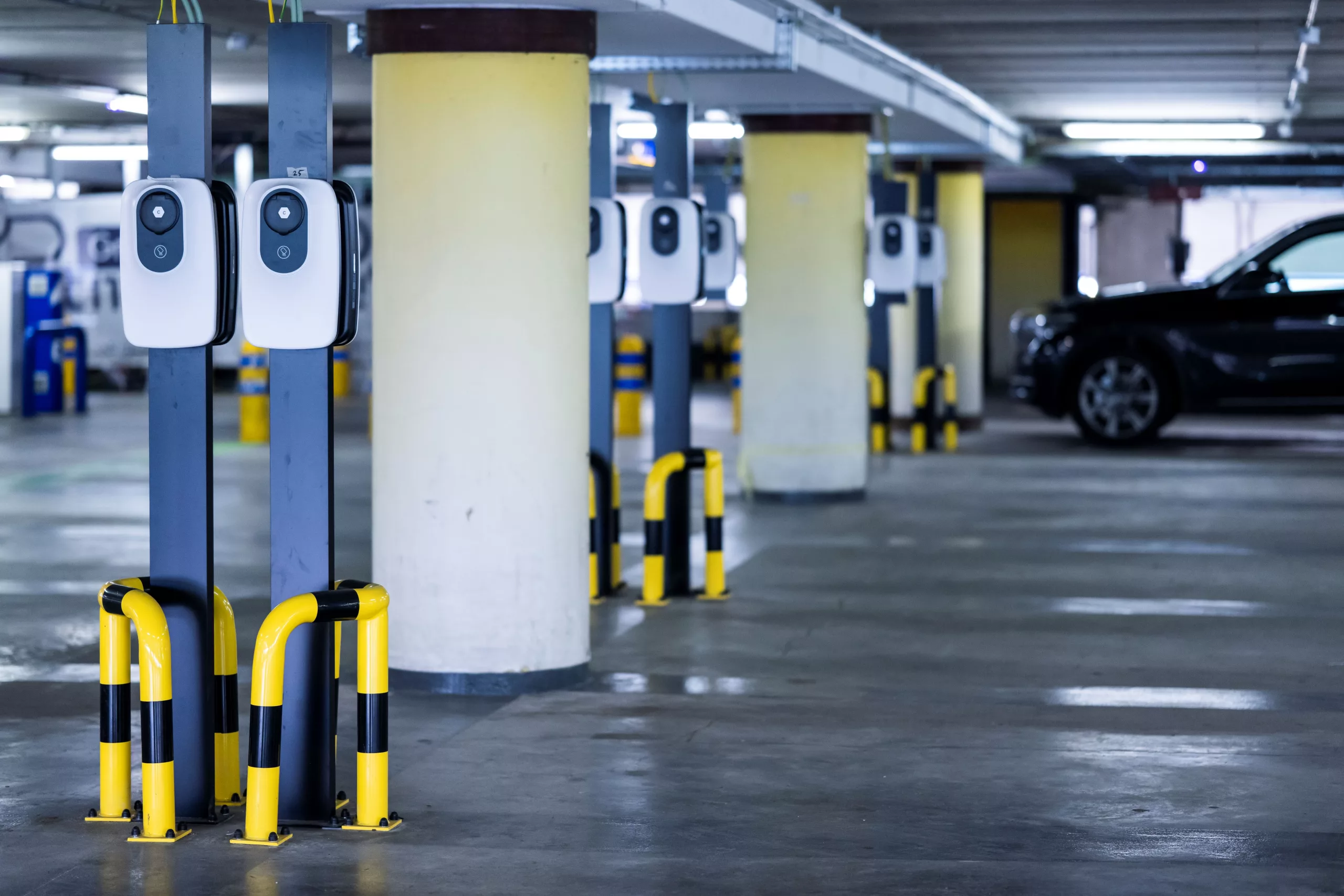With an ambitious goal to electrify their entire vehicle fleet by 2025, Brussels Airport is charging ahead with significant infrastructure enhancements. In a strategic move to support this vision, the airport, in partnership with Interparking, is installing an impressive array of 700 new EV chargers to accommodate the electric vehicles of both travelers and airport operations.
These additions will ensure that the total number of charging stations at the facility reaches 750, accounting for about 6% of the 13,000-plus parking spots. This figure might seem modest until you consider the proportion of EV chargers at other airports, where Brussels Airport’s facilities stand out for their commitment to electrification.
Dedicated to Electric Car Drivers’ Convenience
Travelers with electric cars often face the hassle of moving their vehicle after charging to avoid penalties, but Brussels Airport and Interparking have engineered a more thoughtful model. Their “slow charge stations” serve as the perfect solution for those who are away for extended periods, promising no extra fees post-charging. Accessible with any charging card and exempt from connection charges with Interparking’s Pcard+, these provisions display a clear commitment to streamlined, stress-free customer experience.
Interparking’s CEO Roland Cracco has emphasized the organization’s dedication to promoting sustainability via the expansion of EV stations across Belgium and eight other European nations, indicating a sweeping strategy for greener mobility.
The Slow Charge Strategy
While fast chargers receive much of the hype, the reality is that slow chargers often fulfill the required service at a fraction of the cost. With low power requirements translating to lower installation and equipment expenses, facilities can provide more charging access points. Brussels Airport’s incorporation of these low power chargers demonstrates the ability to meet the needs of travelers efficiently and affordably—proving that slow and steady can indeed win the race.
Currently, the technical installations for these new stations are underway. The full arsenal of 700 additional chargers is expected to be operational over the ensuing months, fortifying the already established network.
Brussels Airport’s Vision of Sustainability
Arnaud Feist, CEO of Brussels Airport, underscores the vital role that electric mobility plays in their sustainability strategy. From electric buses on the tarmac to the electrification of the airport’s fleet, Brussels Airport is keen on expanding the necessary infrastructure for charging electric cars, mirroring the growth trend of electric vehicle ownership. This partnership with Interparking will allow passengers comfort and convenience as they recharge while off exploring or working.
With Interparking’s extended range of services across Europe and their assurance of available parking spots, the frustration of endless circling for space becomes a thing of the past. Founded in Belgium, the company has come a long way, currently hosting car parks across various European countries under different brands.
Looking Forward
In the grand scheme of battling transportation emissions, these steps by Brussels Airport and Interparking can be seen as substantial contributions towards a cleaner future. While some may suggest that the provision of charging stations is still not sufficient, it is an advancement from the 50 chargers pre-expansion. This narrative aligns with recent developments like the introduction of the all-electric Mercedes eEconic truck at Stuttgart Airport, demonstrating the wider trend toward greener airport operations.
It is evident that the pace of the EV revolution varies across regions and industries. Still, with each progressive stride taken by organizations like Brussels Airport and Interparking, a more sustainable transport ecosystem becomes possible, deserving commendation and wider replication.
